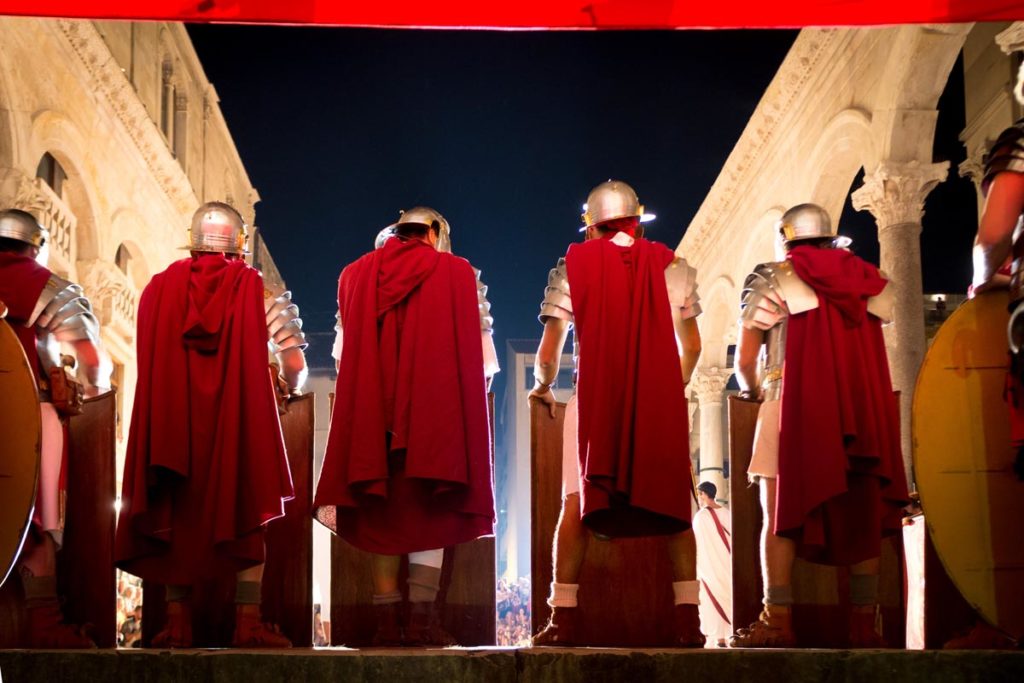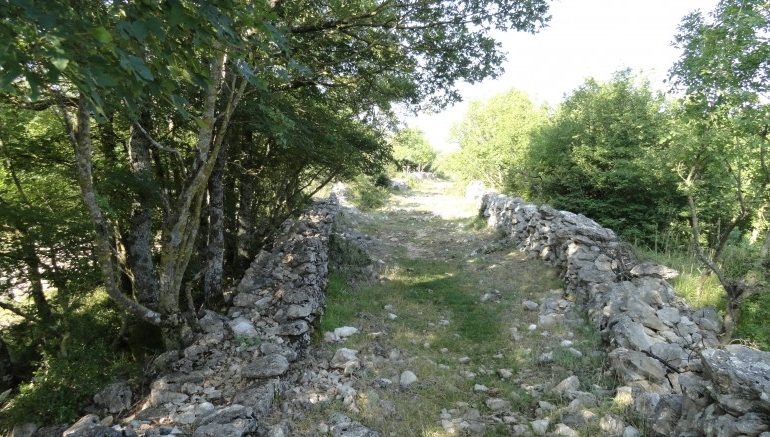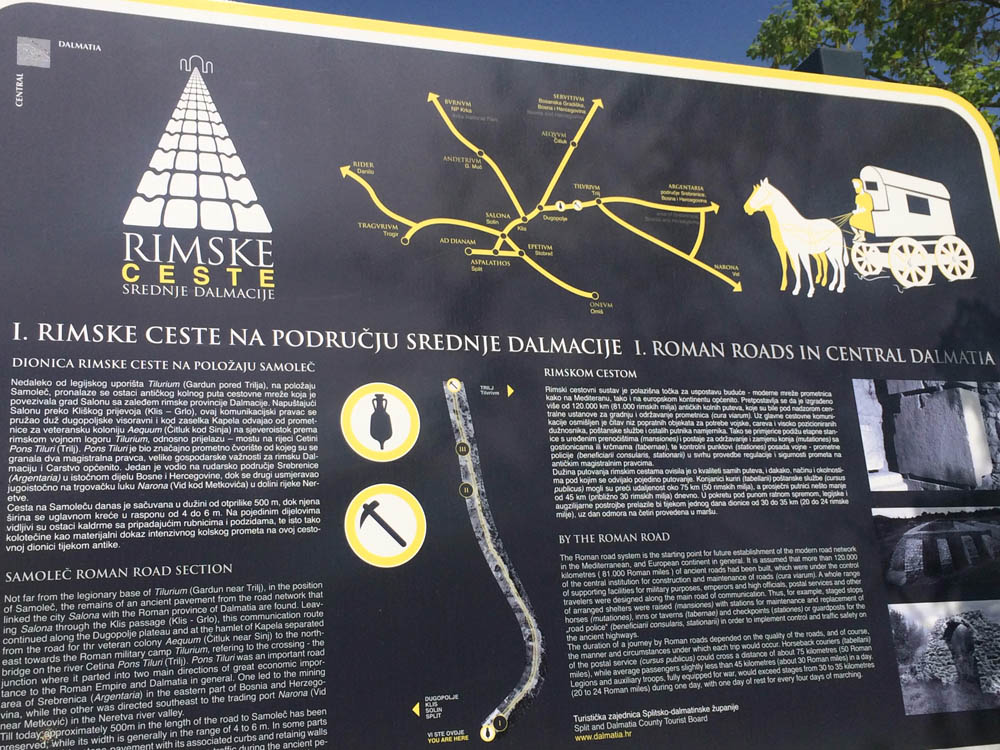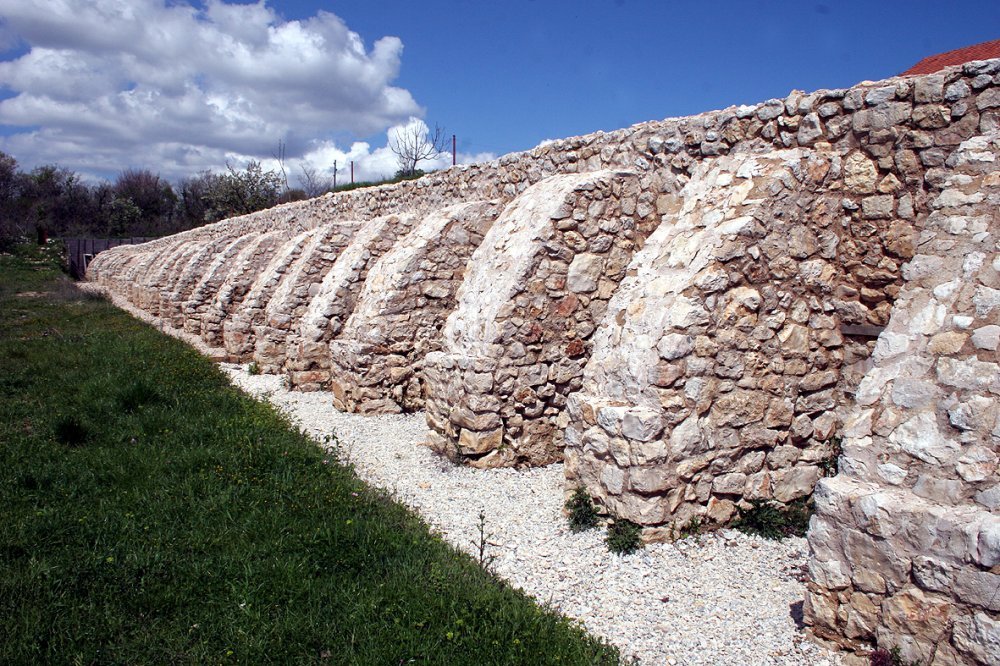This post is also available in: Croatian
Split-Dalmatia County can be explored in various ways, and one of them is travelling along old Roman roads, which are a proof of former turbulent historical periods.

Soldiers from Roman legions marched along them, while numerous pilgrims and others searched a better place for living along this extensive network of roads.

Former busy roads are today transformed into routes full of interesting remains, old military camps and artefacts from archaeologic sites. Central Dalmatia has a lot of them, and therefore this area is a bate for tourist who like to jump backwards to history.

Why go to Rome, when Roman roads can be seen here as well? Their centre was in Salona, old Roman town near Split. Salona is not by chance called antique jewel, its historical structure and infrastructure displays all the wisdom of its builders, impressive for even today’s visitors.

Where will Roman roads take you? In various directions, through protected landscapes of the Cetina canyon, Prološko lake, Red and Blue Lake in Imotski, Vranjača Cave, along the remains of old-Christian necropolis, roman military camps, sacral buildings, historical forts and numerous fortifications.

Their tourist, scientific and historical relevance was upgraded in 2012 by Joško Stella, director of Split-Dalmatia Tourist Board and Lino Ursić, external associate on project of archaeological tourism of the County. In attempt to save old roads from oblivion, they started a project called Roman Roads of Central Dalmatia.

The project surpassed its borders with an exhibition opened on 6 April in Archaeological Museum in Zagreb. The goal was to get people from our capital and numerous other tourists familiar with significant part of Dalmatian and Croatian history.
While developing the project, its initiators have made a big progress regarding preservation and evaluation of Dalmatian road history. For example, in the centre of tourist attention they managed to place Tilurij, remains of old Roman military camp near Trilj, to which leads a network of Roman roads.

Inside this historical edifice Roman bedrooms will be reconstructed as an interesting tourist product. It is the first project of this kind in Croatia, who falls into category of experimental archaeology. Furthermore, it presents a new platform in tourist offer of Split’s hinterland. Numerous participants who have entered the project testify of its importance: Trilj town, Split-Dalmatia County, County’s tourist board and Archaeological Museum from Zagreb.

Roads are not merely roads, they are the paths leading to important sites. When watched from tourist level, old Roman roads are also links to natural beauties, archaeological sites, many excursion points and belvederes. In addition, they lead to localities where one can take part in numerous activities like mountaineering, hiking, horse-riding, cycling, kayaking, rafting…
But we mustn’t forget this region’s specialty – rich gastronomic offer, i.e. homemade traditional specialties that can be tasted along old roman roads. In order to explore treasures of this region, set out on a journey, step by step. Each day in a different direction, each day meeting new vista of beautiful Split-Dalmatia County.
We offer you their suggested itinerary:
Military road: Salona – Klis – Andetrium (Gornji Muć)
Roads of new conquests and determining borders: Salona – Klis, Dugopolje – Dicmo – Aequum (Čitluk) – Servitium (centre of command of First Pannonian Fleet)
Miners’ road: Salona – Tilurum (Gardun, Trilj) – Argentaria (Srebrenica area)
Merchants’ road: Salona – Tilurum – Narona (Vid near Metkovića)
Salona – Spalato
Salona – Epetium (Stobreč) – Oneum (near Baučića village, Omiš) – Makarska
Salona – Siculi (Resnik) – Tragurium (Trogir)
Photo: archive of TB of Split Damlatia county, dalmatia.hr

This post is also available in: Croatian
